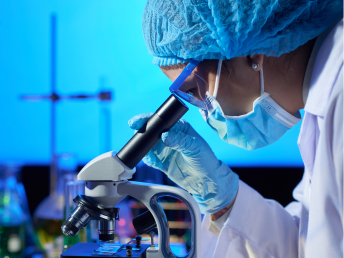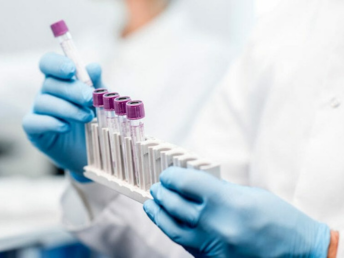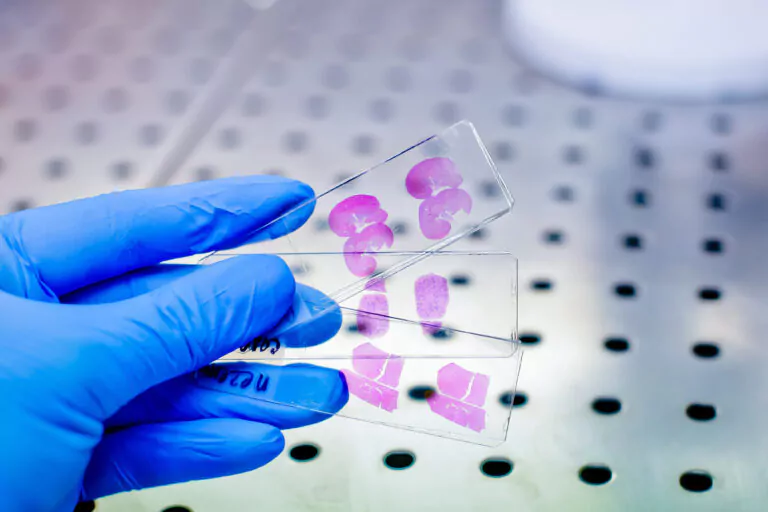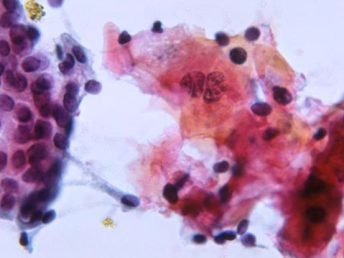Services
Services
Fast, accurate, wide range of diagnostics to help you detect health issues early ensuring a healthier and more proactive lifestyle

Haematology
A general blood test to check overall health and detect a variety of disorders like anemia or infection.
Measures the level of hemoglobin in your blood to assess your overall health and oxygen levels.
Identifies your blood type and Rh factor (positive or negative) for transfusions or pregnancy care.
Detects sickle cell disease, a genetic blood disorder that affects red blood cells.
Tests to measure how long it takes for your blood to clot and stop bleeding, helping diagnose bleeding disorders.
Identifies blood disorders like thalassemia or sickle cell anemia by examining hemoglobin types.
A set of tests to evaluate your body’s iron levels, which can impact energy and immune function.
Measures the amount of stored iron in your body, helping diagnose conditions like iron deficiency or overload.
Assesses how well your blood clots, which is important for monitoring blood-thinning medications.
A set of tests to evaluate your blood’s ability to clot, which is important for surgery or injury recovery.

Clinical Pathology
A general test of urine to check for signs of infections, kidney problems, or other health conditions.
Examines stool to check for infections, digestive issues, or signs of disease.
A test to detect hidden (occult) blood in the stool, which can indicate gastrointestinal problems.
A test to confirm pregnancy by detecting pregnancy hormones in urine.
Analyzes sperm count, motility, and quality, typically for fertility evaluation.

Infectious Diseases
Detects malaria infection by identifying antigens from Plasmodium falciparum or Plasmodium vivax.
A test for detecting typhoid fever caused by the bacteria Salmonella.
Tests for HIV infection by detecting antibodies for both HIV types 1 and 2.
Checks for the presence of the hepatitis B virus in the blood.
Detects antibodies for the hepatitis C virus, indicating current or past infection.
A blood test for syphilis, a sexually transmitted infection.
Tests for the dengue virus, identifying the presence of the virus or antibodies for recent infection.
A group of tests for infections (Toxoplasmosis, Rubella, Cytomegalovirus, Herpes) that can affect pregnancy.
A skin test to determine if someone has been exposed to tuberculosis.

ANC Profile
A test that provides important information about the number and types of cells in your blood, helping to detect conditions like anemia or infections.
BT, CT (Bleeding Time, Clotting Time)
Measures how long it takes for your blood to clot, helping to assess bleeding disorders.
Identifies your blood type and Rh factor, important for pregnancy, blood transfusions, and organ transplants.
Tests for sickle cell anemia by checking for abnormal red blood cell shapes.
Measure your blood sugar at any time to check for diabetes or glucose irregularities.
TSH (Thyroid-Stimulating Hormone)
Assesses thyroid function by measuring levels of the hormone that regulates thyroid activity.
Tests for the presence of HIV infection by detecting specific antibodies.
Checks for the presence of hepatitis B virus in the blood.
A test for syphilis, a sexually transmitted infection, by detecting antibodies in the blood.
Examines urine to detect signs of infections, kidney problems, or other health conditions.

Hormones & Special Tests
Measures thyroid hormone levels (T3, T4) and thyroid-stimulating hormone (TSH) to assess thyroid function.
Measures free thyroid hormones (T3 and T4) to check for thyroid disorders.
Measures prolactin levels to check for hormonal imbalances, often related to fertility or lactation issues.
Detects pregnancy by measuring human chorionic gonadotropin hormone levels in the blood.
FSH (Follicle-Stimulating Hormone)
Assesses reproductive health by measuring levels of this hormone, important for ovulation and sperm production.
Measures levels of this hormone, which plays a role in ovulation and reproductive function.
A test that helps assess a woman’s ovarian reserve, important for fertility evaluation.
Measures AFP levels in the blood, used to screen for birth defects or certain cancers.
A blood test for detecting ovarian cancer or other conditions related to the reproductive system.
PSA (Prostate-Specific Antigen):
Measures PSA levels to screen for prostate cancer or other prostate issues.
Assesses testosterone levels to evaluate male reproductive health, including conditions like infertility or low libido.
Measures insulin levels in fasting, post-meal, or random blood samples to evaluate insulin sensitivity and diabetes.
ANA/dsDNA (Antinuclear Antibody/Double-Stranded DNA)
Tests for autoimmune diseases like lupus by detecting specific antibodies in the blood
These are tests during pregnancy to screen for genetic conditions like Down syndrome and neural tube defects

Biochemistry
Measures blood sugar levels after fasting or after eating to assess diabetes or insulin sensitivity.
Checks your blood sugar at any time of the day, helping to detect abnormal glucose levels.
Assesses how well your kidneys are functioning by measuring substances like urea and creatinine in your blood.
Measures the amount of urea in your blood to evaluate kidney function.
Tests kidney function by measuring the waste product creatinine in your blood.
Electrolyte Analysis (Na/K/Ca):
Checks levels of important electrolytes (sodium, potassium, calcium) to ensure proper bodily functions.
Measures enzymes and proteins to assess how well your liver is working.
Bilirubin (Total/Direct/Indirect):
Helps diagnose liver or blood disorders by measuring bilirubin levels in the blood.
Proteins (Total/Albumin/Globulin):
Evaluates protein levels to check for liver disease, kidney problems, or nutritional issues.
Measures liver enzymes to detect liver damage or inflammation.
Measures an enzyme linked to liver, bone, and other organ functions.
Checks cholesterol and fat levels to assess heart disease risk.
Measures total cholesterol in the blood to assess heart health.
Measures uric acid levels to help diagnose gout or kidney problems.
Measures calcium levels in the blood, important for bone health and heart function.
Tests for enzyme levels to check for pancreatic or digestive issues.
Measures lipase enzyme levels to diagnose pancreatitis or digestive problems.
Assesses heart muscle damage, often used in diagnosing heart attacks.
Measures vitamin B12 levels, important for nerve function and red blood cell production.
Checks vitamin D levels, important for bone health and immune system function.
A test for diagnosing diabetes by measuring blood sugar after a meal.
Measures how well your body processes glucose to assess for diabetes.
Measures your average blood sugar levels over the past 2-3 months to diagnose or manage diabetes.
A test used for diagnosing and monitoring diabetes by measuring your blood glucose levels.

Serology
A test to detect rheumatoid arthritis by measuring certain antibodies in the blood.
Measures inflammation in the body, often used to diagnose infections or chronic inflammatory conditions.
Checks for recent strep throat infection or related conditions like rheumatic fever.
A test to detect tuberculosis (TB) infection by identifying TB DNA in blood or other samples.

Covid Profile
Provides important information about the number and types of cells in your blood, helping to detect infections and immune system response.
Measures inflammation in the body, which can be elevated in cases of infection like COVID-19.
A marker of tissue damage, often elevated in severe COVID-19 cases, indicating organ stress or injury.
A test to detect blood clot formation and breakdown, which can be elevated in COVID-19 patients, especially with complications like thrombosis.
Measures iron storage in the body, with high levels sometimes linked to inflammation or severe illness, including COVID-19.
Assesses kidney health by measuring creatinine, urea, and other markers, which can be affected during COVID-19 infection.
Evaluates liver health by measuring enzymes and proteins, which can be impacted by viral infections like COVID-19.
Checks for blood sugar levels, as COVID-19 can affect glucose metabolism and may worsen existing diabetes.

Histopathology
Examination of tissue samples to diagnose diseases at the cellular level.
Study of tissue changes related to cancer diagnosis and prognosis.
Analysis of tissues removed during surgery to guide diagnosis and treatment.
Investigation of diseases affecting the brain, spinal cord, and nerves through tissue examination.
Diagnosis of diseases in infants and children through tissue analysis.

Cytology
A quick, minimally invasive test where a thin needle is used to extract cells from a lump or tissue for diagnosis.
A simple test to check for early signs of cervical cancer by collecting cells from the cervix.

Immunohistochemistry (IHC)
A lab test that uses special dyes and antibodies to detect specific proteins in tissue samples, helping to diagnose diseases like cancer.